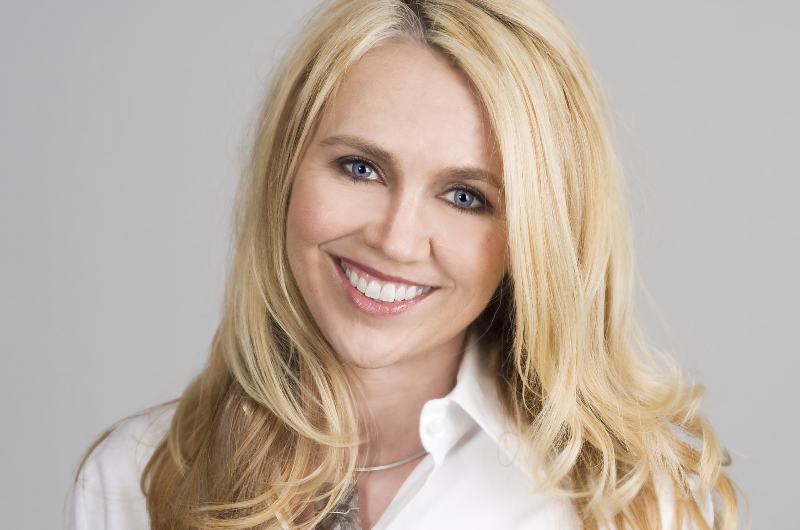Anthony Tripolino FIPA: Lessons from teenage side hustles
Having proven his entrepreneurial flair as a teenager, Anthony Tripolino FIPA was taught lessons around work ethic by...
READ MORE
Founder of business coaching company Businest, Rhondalynn Korolak, shares her insights into why accounting firms are struggling to find the right balance of upskilling employees, marketing successfully and offering clients what they want – advisory services

Q: As a business coach and former accountant, what’s the biggest mistake you see accounting firms making?
The biggest mistake that I see accounting firms making is they’re trying to sell fruit to their customers when what the clients really crave is chocolate.
There’s a common misconception or mistake in the industry where everyone thinks that we have to give our small business clients reports and dashboards and KPIs.
However, at least 87 per cent of small businesses are financially illiterate, so it doesn’t matter how good the graphs look or how beautiful the dashboards and KPIs are. If someone can’t read their financial statements, they can’t read those either.
Accountants are perfectly positioned to help small businesses but we can’t do it if we keep trying to teach clients accounting.
The small businesses owners don’t want to learn it, they want us to take all the accounting jargon out and give them a clear roadmap with step by step instructions of how they’re going to fix their problems.
Q: What new skills do accountants need to deliver advisory services?
Advisory services aren’t about dashboards and it isn’t about giving people reports and all that kind of stuff. It’s about two things – getting leverage on the client and getting them to take action.
The skills that most advisers would need to be able to pull that off and do it well are, in many ways, the exact opposite of the skills that we were trained in school.
Even the universities are still graduating students with skills for jobs that don’t exist anymore.
Right now, when you’re an accountant, your whole job is about accuracy. There is no grey in cash flow. It’s either right or it’s wrong. People give you their documents and you pump out tax returns and BAS reports and whatever else you do.
To become an adviser, you have to manage uncertainty. Being an adviser is about collaborating with the business. It isn’t about telling people stuff, it’s about asking questions and becoming a better listener.
We have to teach them the difference between those two things and how they're practically going to do it.
Q: What training should accounting firms offer to address this skills gap?
They need to have training full stop. I have been going around to firms and none of them have training plans in place to teach their team advisory skills.
They don’t have a strategy, they haven’t done skill deficiency diagnostics or assessments on their teams, and they don’t have any kind of training plan in place to upskill these people.
We must teach all of these soft skills and disciplines, and I haven’t met a single firm that has any kind of plan in place to do that.
Everyone’s talking about ‘trusted adviser’, but is anybody actually doing it? No. Is anyone teaching it? No.
Q: How should firms be marketing themselves as advisory?
In our industry, so many people talk about social media and LinkedIn and marketing and sales, but that stuff is useless to an accountant and a bookkeeper.
It’s like putting the cart before the horse. It’s like saying get out and sell yourself, but what are you selling?
First of all, they have to figure out what they can do. They don’t know right now.
If you don’t have a strategy in place and you don’t have the right diagnostic tools and you don’t have a skills deficiency test and you are not actively upskilling all of your client-facing accountants to perform advisory services, you’ve got no business marketing yourself as that.
They’re wasting all their money on advertising because they’re advertising services they don't know how to provide.
If you go out and beat your chest and say “I am an adviser”, it doesn't make it so.
Q: How should accounting firms encourage their clients to embrace technology?
The global penetration of basic cloud technology is less than 20 per cent. That’s not good.
Let’s just say that a client uses a desktop accounting package, their numbers might not be current for months. How in the world can we help people with cash flow and productivity if we don’t have visibility of what’s going on in the business today?
Accountants need to get their clients to use cloud products but accountants are horrible sellers and marketers.
All of these technology companies and software companies are relying on the accountants and the bookkeepers to do the selling, but they’re not any good at selling because they go into it with the mindset that they’re asking people for money and they hate to do it.
They need to go in with the mindset that “if we move you from here to here, we’re going to save you this much money, we’re going to keep you from making productivity losses over here, we’re going to help you with this, we’re going to help you with that”. They don’t position things correctly because they haven’t been taught how to.
Q: In how much time do accounting firms have to change?
CEDA put out a report this year and they have forecasted that accounting as we know it, 94 per cent of the jobs that accountants do will not exist in 10 to 13 years because of AI. If that’s the truth, we don’t have a heap of time.
People can’t wait until year seven to begin the migration to advisory service. They need to act now. In fact, they needed to act yesterday, but the second best time to do it is today.
Rhondalynn Korolak, managing director, Businest Pty Ltd